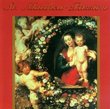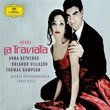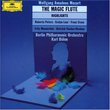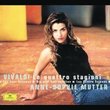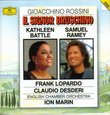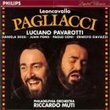| All Artists: Harald Proglhoff, Josef Metternich, Richard [1] Strauss, Lovro von Matacic, Otto Ackermann, Philharmonia Orchestra of London, Anny Felbermayer, Elisabeth Schwarzkopf, Murray Dickie Title: R. Strauss: Four Last Songs Members Wishing: 0 Total Copies: 0 Label: EMI Classics Release Date: 4/20/2004 Genres: Pop, Classical Styles: Vocal Pop, Opera & Classical Vocal, Historical Periods, Modern, 20th, & 21st Century, Symphonies Number of Discs: 1 SwapaCD Credits: 1 UPCs: 724358582529, 724358582550 |
Search - Harald Proglhoff, Josef Metternich, Richard [1] Strauss :: R. Strauss: Four Last Songs
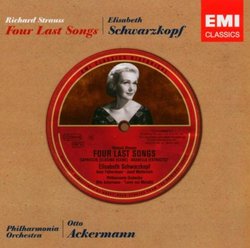 | Harald Proglhoff, Josef Metternich, Richard [1] Strauss R. Strauss: Four Last Songs Genres: Pop, Classical
|
Larger Image |
CD DetailsSimilar CDsSimilarly Requested CDs |
CD ReviewsBUY IT FOR THE ARABELLA SCENES Mark E. Farrington | East Syracuse, NY | 08/01/2006 (5 out of 5 stars) "
In the days following WWII, and indeed right up through the 1980s, the conventional/critical "line" on Richard Strauss was that he "lost it" after composing ELEKTRA & ROSENKAVALIER. EMI producer Walter Legge was classical music's "man with the golden gut" (as Fred Silverman was to TV, in his day). Going against the grain of what was considered "safe" repetoire, Legge, with these early LP scenes from ARABELLA & CAPRICCIO, truly stuck his neck out. Not to mention his 1954 ARIADNE - the first-ever commercial recording of what may be Strauss's best opera - and the legendary album of Dennis Brain playing the HORN CONCERTOS. True, Decca had already recorded Della Casa in a superb CAPRICCIO Finale, and three exquisite scenes from ARABELLA. (These are available on a Decca Legends disc along with Della Casa'a and Karl Bohm's 1953 VIER LETZE LIEDER.) But comparative listening reveals that the Legge-Schwarzkopf album is prepared and produced with even greater care and commitment. This paid off, because it vindicated Legge's instinct that there really was a market for at least some of the post-ROSENKAVALIER Strauss - thus laying the commerical groundwork for full-length recordings of DIE FRAU OHNE SCHATTEN, ARABELLA, DAPHNE and CAPRICCIO. Dame Elisabeth Schwarzkopf never sang a live Ariadne or Arabella in her career- which makes these ARABELLA scenes a precious artifact of the post-war Golden Age of Great Straussian Singing and Conducting : Bohm, Solti, Sawallisch, Reiner, the earlier "pre-slick" Karajan, Della Casa, Schwarzkopf, Rysanek (WHY do I torture myself like this?). It was one of the mercies of Strauss's later years that he lived to see the beginnings of this flowering...After hearing her sing the role of Czdenka, he told Della Casa that, one day, she would be THE Arabella. And after Solti came to Garmisch to converse with him, Strauss- only days from death- muttered, "It's too late for me. But that young man gives me some hope." Arabella : this is a role in which Dame Elisabeth's fabled "calculatedness" is actually CALLED FOR. Only Lisa Della Casa (who had an even greater bel-canto INSTRUMENT) could give her a run for her money in these scenes, and even then, only in part. Schwarzkopf portrays a young woman whose circumstances have indeed forced her to "caluclate," but she also shows the warmth and humanity behind Arabella's diamond-hard brilliance. (After all, she betrays NOBODY. And the crucial scene in Act II, where she takes a last waltz with her three former suitors, is the essence of tact and compassion.) Five scenes are featured here, but six were actually recorded (for an old EMI LP called "ARABELLA: The Great Scenes"). Schwarzkopf does not appear in the scene which never "offically" made it to CD. It begins with "Welko, das Bild": Mandryka and his servant (who holds a photograph of Arabella) pay a visit to the Waldner's hotel suite, looking for "Das schones Fraulein mit dem Gesicht" ("the pretty girl with the face"). In this scene, Josef Metternich, clearly the greatest Mandryka on record, makes us regret that he never recorded the role complete. George London (on the 1957 Solti) and Fischer-Diskau (on the live 1963 Keilberth and the 1981 Sawallisch) both make a heroic effort. But in projection of outdoor Slavic ambiance and nobility, and in sheer PIPES, neither of them could buff Metternich's riding boots. Two sad omissions: during these 1953-54 sessions, (1) the ARABELLA "Staircase" music (preceding "Dass war sehr gut, Mandryka") was seemingly not recorded. (Or maybe it WAS recorded, but could not fit onto Side 2 of the original LP; Side 2 of my vintage, red-label Angel pressing shows a rather crowded "goove mass.") (2) Nor was the CAPRICCIO "Moonlight" Music recorded - with its famous horn solo - which could have preceded this recording of the Finale (Schwarzkopf's first). No doubt this earlier version was a "trial run" for the complete CAPRICCIO of 4 years later. And in 1953 Legge, the Philharmonia, and solo horn Dennis Brain must have thought they had all the time in the world. But, as we know, they did not...The sessions for the complete CAPRICCIO (with Schwarzkopf, Sawallisch and the Philharmonia) would begin on September 2, 1957 - the morning after Dennis Brain dozed at the wheel and wrapped his sports car around a tree. And that later version of the Finale is superior in every way - playing, recording, conducting, and in the depth of Dame Elisabeth's interpretation. Still, Dennis Brain never recorded the Moonlight Music. (Alan Civil, in his place, plays poignantly. But it must have been gut-wrenching for all those present; this was supposed to be Dennis Brain's moment.) And a minor complaint: the Act II scene, beginning with "Und jezt sag' ich adieu" may have been abbreviated by as much as 3 or 4 minutes...I distinctly recall the old LP version of this scene, and how it included the passage where Czdenka slips Matteo the key to "Arabella's Zimmer." Was this in order to squeeze the Four Last Songs, the Capriccio Finale and these Arabella scenes all onto the same disc? (This disc's total time is over 77 minutes, so apparently, once that "editorial decision" was made, they had to cut, somewhere. So bye-bye Czdenka, Matteo & "the key," and syanora "Welko, das Bild.") If this is what happened, EMI should have put out a COMPLETE single disc of ALL the Arabella excerpts recorded at these sessions; and then they could have issued another disc, with the Ackermann/Schwarzkopf Four Last Songs & Capriccio Finale, and maybe filled out with Schwarzkopf's earlier, mono Strauss Lieder and Rosenkavalier scenes. Or even a two-disc set with ALL of this material. It would have been a lot better: but no, but no. The CAPRICCIO Finale and the Four Last Songs are both conducted by Otto Ackermann- a supreme genius at operetta, but a bit out of his depth in mature Richard Strauss. But this could never be said of Lovro von Matacic, whose unique understanding of this score makes us wish this had been a complete ARABELLA. Far more than Solti and Keilberth, he rests with ease on the edge of the Straussian "razor blade," balancing all those moments of arioso lyricism against "conversational exposition." (In all fairness, Bohm, in his live 1947 Salzburg performance, came close; and Solti's 1970s video production with Gundala Janowitz shows how much he had grown into this work, in the two decades since his frantic 1957 effort.) Dame Elisabeth was to re-record the Four Last Songs in stereo, with George Szell and the Berlin Radio Orchestra, in 1965. Even with "Fruhling" transposed down a half-step, that later recording is perhaps the supreme version of this music. Somehow, the legendary "fussy, unspontaneous" qualities of Legge, Schwarzkopf and Szell all cancel each other out, leaving us with unpretentious mastery and penetrating melody. By all means, snap this up for the Arabella scenes- and keep a lookout for the missing "Welko, das Bild." Because, overall, this caliber of music-making is GONE. Enough said. (Postscript, August 3, 2006: what I wrote, three days ago, about such music-making being GONE, is even more true now...Dame Elisabeth passed away today. "Die Zeit, die ist ein sondebar Ding.")" |

 Track Listings (10) - Disc #1
Track Listings (10) - Disc #1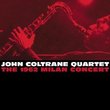
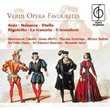
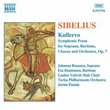

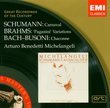
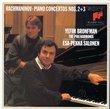
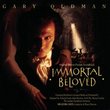
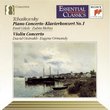
![Delibes - Lakmé / Mesplé, Burles, Soyer, Millet, Opéra-Comique, Lombard [highlights]](https://nationalbookswap.com/cd//m/63/8663/6008663.jpg)
